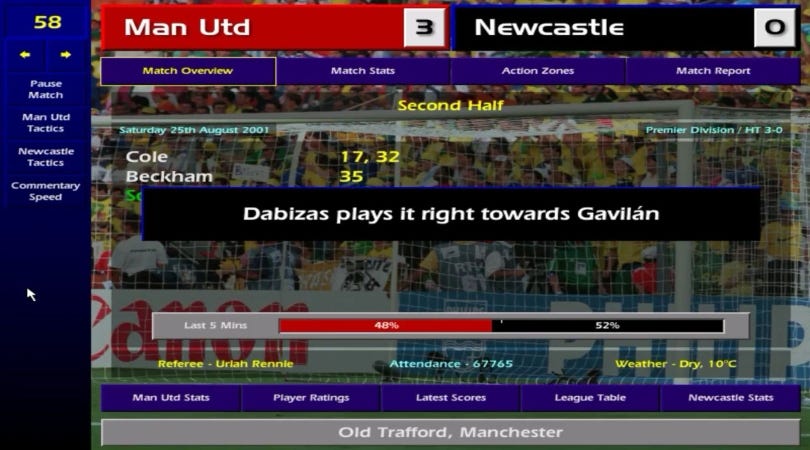Former Chelsea captain John Terry once admitted in an interview he ‘always’ got nervous before games.
Terry would explain how he developed a routine to help calm down.
“I was terrible for superstitions,” he said.
“Every time we won I just added something on. I had to wee in a certain urinal. I was counting the lamp posts from my house to Stamford Bridge,” Terry added.
Terry was a tower of strength in Chelsea’s defence. Someone who other players looked for when things got tough in the fire of battle.
But before the game…
“You know the light switches have a little red bit at the top, our rivals over the years were Manchester United and Arsenal. I'd hate seeing red on a matchday,” Terry recalled.
“So I'd go down the corridor and have Diego Costa behind me turning them all back on. I'd then have to go back, switch them all off and get on the bus,” he said.
Mom’s spaghetti
My palms were sweaty, knees weak, arms were heavy.
The worst anxiety I’ve ever felt was always in the minutes before having to give a speech to a large audience. It never evolved into Eminem territory of “mom’s spaghetti” splattered all over the place. But like Terry, I did need to invent things in order to ease those nausea inducing stomach butterflies.
The only other thing which has made me equally emotionally wrecked? Watching a game of football.
It’s actually not an odd revelation. Those who fully invest into the life of football fandom find out pretty quickly how the game can easily become a sickeningly cruel 90-minute long rollercoaster ride (Just ask The Deadpool and Rob McElhenney).
I first started noticing weird habits while watching football back in the early 2000s.
Manchester United’s grip on Premier League dominance was starting to shake free courtesy of the challenge from a Thierry Henry-inspired Arsenal as well as the Terry-led Chelsea.
This period also coincided with a time in my life where I was living abroad in Australia as a student at University – meaning I could basically watch every single United game which I did.
I wasn’t an emotionally mature enough 20-something-year-old to handle the constant feeling of ‘we have to win this game or the season is over’. Imagine how the actual players felt!
To cope, I had to smoke an even amount of cigarettes per half. This would usually be two per half, totalling four per game. But if the match was full of drama, I would have to smoke four per half instead (eight in total). My lungs are glad VAR wasn’t around back then.
I would also need to have the remote control parallel to the edge of the table. And if the TV guide (yes this was a long time ago) was there it also had to be parallel to the remote and to the edge of the table.
Thanks to my efforts, United did win more games than they lost in those years. Sir Alex Ferguson has still not acknowledged me for my contributions to his success as manager.
Football Manager: Where it really began
I didn’t know it at the time, but the coping mechanisms were seeded a decade earlier.
My first loves were always basketball and tennis. These were the sports I played and watched growing up. Football was simply a curiosity on the menu at this point. Then in secondary school, I discovered a game called Championship Manager (it later became Football Manager).
CM was so different. I was captivated by the simplicity. It was addictive. But my knowledge of the football universe was limited. I sucked at the game.
For those who never played, the matchday experience of CM was basically flashing text commentary and a bar showing near-live possession stats.
I remember at one point putting the mouse cursor in different corners of the match screen in a desperate attempt to influence the possession. When that didn’t work, I would sit a certain way so that my toes were tiptoed. That actually seemed to work.
Over time as I got more into the sport and better at the game, my nervous tics became rhythmic shaking of the legs. The thighs went up, it went down, and strangely provided me comfort along the way. A reassurance I had some control over what was about to happen next in the game.
I don't do any of this when I play Football Manager today.
The internet era and years of practice have given me the knowledge and confidence to defeat the game’s AI most of the time.
But occasionally when every game in the season suddenly becomes a must-win, the nerves start to bubble up again.
And one must do what one has to do to soldier on.
“It was a little bit OCD. Just going into games I always knew I was right and that made me feel comfortable,” Terry said.




